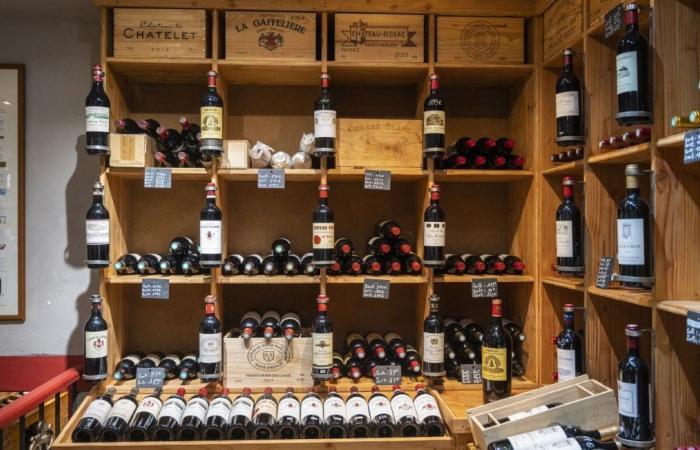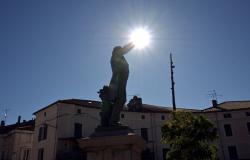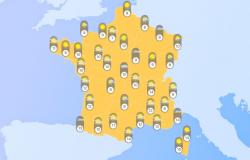
The French wine sector retains a bitter taste from Donald Trump, still very present in the mouth. In October 2019, he had in fact decreed customs duties of 25% on “still wines” (non-sparkling) from France, as part of the dispute between Boeing and Airbus.
His election on Wednesday, while he ran his entire campaign on the theme of “America First”, made French wine growers and exporters fear the return of a tax, which was only suspended – not lifted – by the Biden administration in 2021. “The risk is high,” estimates Hortense Bernard, commercial director of Millesima, a trading house in Bordeaux and a heavyweight in online wine sales in France. It could also be applied more in retaliation to digital taxes than in the context of the Boeing/Airbus conflict,” continues this specialist in the American market, where she worked for ten years.
“A 10% tax would be a lesser evil”
Hortense Bernard explains that “it is a tax of 10% on all imports from Europe which is currently being considered, except that there are lobbyists pushing to go beyond”. Which makes him say that “if we end up with a tax of 10%, it will be a lesser evil and we will get by”, while it will be “much more complicated if it is 25%”.
“It's a bit paradoxical to scream before you're in pain,” admits Jean-Marie Fabre, president of the Independent Winegrowers of France, “but in this case, we paid to see. In 2019, Donald Trump hit where it hurts, knowing that the wine and spirits sector is in second or third place for surpluses in the French trade balance. The United States is the leading country for wine consumption in the world, and French wines generate a turnover of 4 billion euros per year there. Trump therefore very well measured the weight that the American market represents for our sector. »
After the application of the tax, the French wine industry suffered “a shortfall of 600 million euros in one year” on the American market, recalls Jean-Marie Fabre. “And during this time, the other producing countries – Italy, Spain, etc. – rushed into the market shares that we were losing. » Which makes the boss of independent winegrowers say that a possible “defense strategy on a European scale, to respond to this taxation of French wines, was not necessarily shared by other countries”. “We left the French wine sector alone to foot the bill for the aeronautics trade dispute,” he laments today.
Will the champagnes go to the checkout?
Caught off guard in 2019, this time, “the wine industry is organizing itself in the United States to defend our interests,” assures Hortense Bernard. She points out in particular that “restaurateurs in the United States make most of their margins on French wines”. “French wine is not substitutable,” she continues, “because we have a wealth that allows us to cover a lot of specificities. Especially since the champagnes, which had been spared the first time, are on the front line this time. »
American companies in the sector – importers, distributors, resellers – “are in the process of climbing into the net”, assures Jean-Marie Fabre, because they would also be affected by an increase in prices. “Americans consume 80% of imported wines, so they are the ones who, in finewould pay the bill, but Donald Trump also campaigned on purchasing power,” recalls the president of the independent winemakers.
The problem “is that Donald Trump is unpredictable, and everything that is being done to defend French and European wines can fall apart overnight,” analyzes Hortense Bernard. This is why some professionals prefer to anticipate. “American importers are preparing to overstock certain French wines right now, because anything that would have been brought in before the application of a new tax would escape it,” explains Jean-Marie Fabre. But we still need to be able to assume this overstocking. »
Push the European Union to settle this dispute
The boss of independent winegrowers believes, however, that the strongest response must come from Europe. And regrets that nothing has been done since 2021. “Our lobbying has not stopped since Joe Biden came to power, to push the French government to demand that the European Union definitively resolve this trade dispute. And I deplore that there was no result,” complains Jean-Marie Fabre.
“We are asking today to open dialogue quickly, but I fear that it will not happen any differently than the first time, so we must prepare well for the worst, so as not to find ourselves in January or February facing the accomplished fact. I think it will be necessary to implement tools that allow us to gain share in other markets, in particular financial support for French companies which would be penalized in the United States. » Out of 4,500 French winegrowers exporting to the United States, “there are 3,500 independent winegrowers, that is to say VSE-SMEs, who make a very significant figure on this market, since we mainly sell premium products there. », recalls Jean-Marie Fabre.
Bordeaux wines are particularly at the forefront, since the United States represents their second largest export market, both in volume and value. In twenty years, Bordeaux exports have increased by almost 30%, which in 2023 represented 205,000 hectoliters (27 million bottles) in volume, for a value of 369 million euros.





